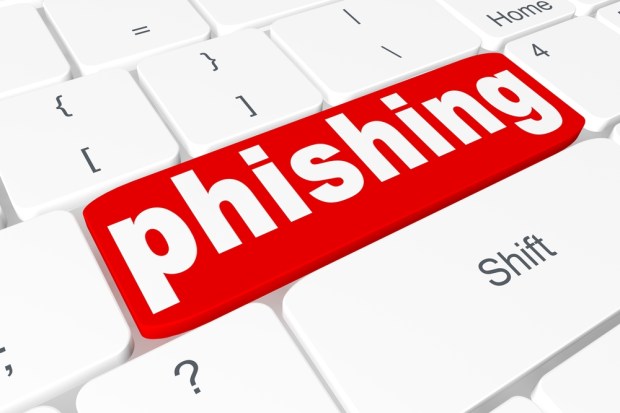Business Scams, Everywhere, Phishing For Funds

Emails still seem to be the way to go when it comes to parting SMBs from their money. The scams have gotten so egregious that any number of investigations and regulatory bodies have gotten into the fray. Dozens of arrests, millions of dollars uncovered in fraud – and, oh yeah, there’s still some bad stuff being done with corporate cards.
Business scams are nothing new. There are just new ways to do them, it seems, and in the age of technology, the crackdowns on bad actors are going global.
This past week saw the Federal Trade Commission (FTC) announce a new law enforcement initiative that focuses on bad actors who seek to commit crimes against small businesses. The efforts come in tandem with eight state attorneys general, in addition to the New York Division of the U.S. Postal Inspection Service and the Better Business Bureau.
Collectively, the agencies and the attorneys stated that they had 24 actions in place, all geared toward fraud attempts and crimes against small businesses through a period of several months.
The actions come as the BBB debuted a report with results from a survey conducted among 1,200 SMBs across the nation, showing that scams are a growing risk for businesses. Two thirds of those surveyed said they have been targeted by a scammer in the past three years.
The movement by the agencies listed above comes the same week that a Barracuda survey found that almost all businesses have been hit by cyberattacks, especially with email scams. The survey, which spanned more than 630 firms, showed that 90 percent of executives say they’ve been under fire from fraudsters.
Email attacks seem to be gaining ground. Of those surveyed, 81 percent said email attacks have been on the rise. Of that, 25 percent said the increases have been “dramatic” in scope. The costs are dramatic, too, as 67 percent have said they had to divert resources from other priorities to deal with attacks. As many as 35 percent of firms were hit by ransomware attacks, and when ransoms were demanded, 12 percent opted to pay up. Finance departments were most vulnerable.
Want more proof of email as a favorite scamming tool? The U.S. Department of Justice said it had arrested 74 individuals who allegedly committed fraud via business email compromise scams. The arrests were international in scope, and come as part as the FBI’s Operation Wire Wire, which is designed to pinpoint those scams.
In some cases, the fraudsters targeted HR departments, looking for personal information such as tax records. Of the arrests, 42 were in the U.S., 29 in Nigeria and three across Canada, Poland and Mauritius. The investigation uncovered $14 million in wire fraud and recovered $2.4 million.
As part of that investigation, and a bit illustrative of how scammers can hit a business hard, abcnews4.com reported that two Nigerians had been arrested after their email scam cost a South Carolina business to the tune of $350,000.
A bit more granularly, a Secret Service investigation led to last month’s indictment of eight Florida residents who had allegedly put together an email scam that took millions from victims. The bad apples set up shell companies that looked like official firms with whom the victims had been dealing, and linked bank accounts to those companies. The investigation revealed that as much as $1 billion had been bilked.
Beyond the confines of emails, corporate card fraud is still extant. The city of Stamford has said it is reviewing all purchasing and procurement activities in the wake of the arrest of Sean Elumba, who had served as supervisor of the marina operations. Elumba allegedly used city funds – to the tune of $60,000 – on personal items.
Elsewhere, the Tallahassee Democrat reported that Tamara Gray used corporate cards to embezzle $200,000 from her former employer, a land survey and civil engineering firm where she worked as a payroll manager. Gray allegedly used the funds to pay bills and also play online video games.